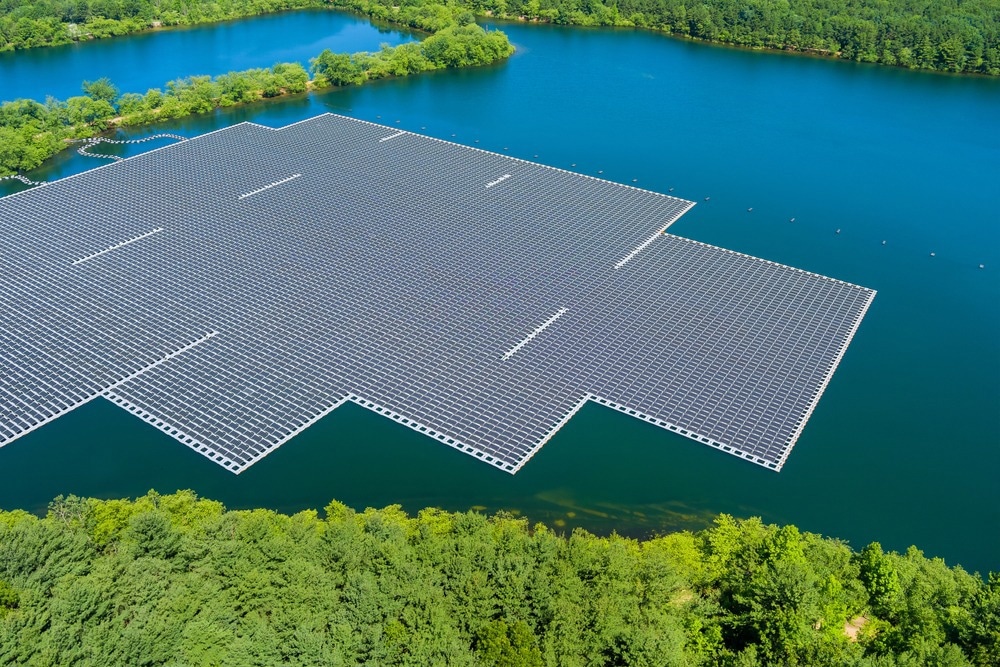Overview:
Floating solar panels, otherwise called floating photovoltaics (FPV), fundamentally affect the growing environmentally friendly power age in water bodies.

How it's done:
Expanded Energy Productivity:
Cooling Impact: Water bodies cool the floating solar panels, working on their productivity and energy yield by up to 10%, contrasted with land-based frameworks.
Ecological Advantages:
Decreased Algal Development: By concealing the water surface, drifting boards restrain algal sprouts, further developing water quality.
Energy Age Potential:
Adaptability: Huge water surfaces like lakes and supplies offer broad regions for increasing sun based energy projects, essentially expanding the absolute energy age.
Worldwide Potential: With numerous nations having adequate water bodies, the worldwide potential for drifting sun oriented energy is huge.
Cost Productivity:
Diminished Land Obtaining Expenses: By keeping away from the significant expenses related with land securing and planning, drifting sun oriented activities can be more practical.
Improved on Establishment: A particular plan and simplicity of establishment on water bodies add to the reduction of large undertaking costs.
Lattice Dependability:
Closeness to Water Treatment Plants: Many water bodies with drifting sun powered establishments are close to water treatment offices, giving a steady and restricted energy supply.
Diminished Transmission Misfortunes: Creating influence near where it is utilized limits energy misfortunes during transmission.
Environment Versatility:
Flexibility: Floating solar panels are less defenseless to overheating and can all the more likely endure climatic varieties contrasted with ground-mounted frameworks.
Moderating Metropolitan Intensity Islands: By sending floating solar panels on water, metropolitan intensity islands are alleviated, adding to cooler nearby environments.
Innovative Progressions:
Imaginative Plans: Persistent progressions in drifting sun based innovation further develop proficiency, sturdiness, and cost-viability, making them a practical, sustainable power arrangement.
Crossover Frameworks: Consolidating drifting solar with other inexhaustible sources, like hydroelectric power, can improve energy creation and capacity.
Supportability Objectives:
Environmentally friendly power targets: Floating solar panels contribute fundamentally to meeting public and worldwide environmentally friendly power targets and advancing feasible turn of events.
Lessening Carbon Impression: Expanded reception of floating solar panels decreases reliance on petroleum derivatives, bringing down ozone harming substance emanations.
All in all, floating solar panels offer a reasonable and proficient answer for boosting environmentally friendly power in water bodies, adding to ecological protection, energy effectiveness, and worldwide manageability objectives.
Read more: What is the only planet in the solar system to rotate on its side